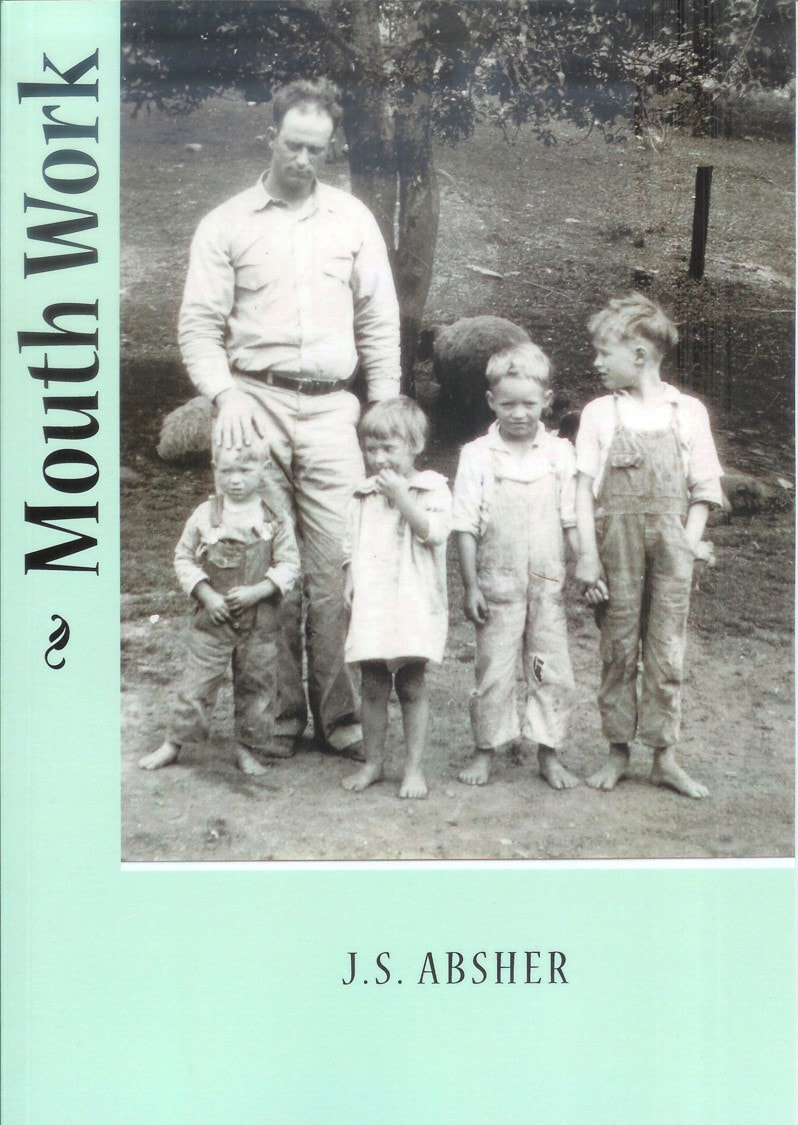|
Available on Amazon
“By using the rough rural settings and ways specific to his father’s past and his own and in the language of those times and places, Absher has displayed for us the sins of his father and argued convincingly for the world’s compassion. He writes, ‘…love raises welts across the heart.’ Each of us bears love’s welts. In Mouth Work J.S. Absher plumbs the history of his own in these heartbreaking and beautiful poems.” - Joan Barasovska, author of Birthing Age ***** “The story [in "What I Knew and When”] is simple enough; as a poem, though, it's got so much depth and weight that it feels like all of nostalgia is wrapped up in it, all the regrets for dumb decisions or bad luck, for roads not taken. Some of Absher's poems are playful, like ‘We Last as Long as the Dew.’ Some of them are so gorgeous I want to read the whole thing to you. And what runs through the book is the relationship between father and son. Some of the jumps of thought are almost miraculous: How do you go from here to here? How did you know it would be so perfect?” - “Uncle Orson Reviews Everything,” Orson Scott Card, September 15, 2016. ***** “‘How to Write a Thank You Note’ is an inspired, odd mix of a gratitude list and quotations from a book on letter writing. It’s not only a song of thanks for a host of plants and animals (and more), but also a celebration of words and sounds: ‘For these I am thankful: for cara-rayada and mirikina, / for schmalschnauzige and potto and cuchumbi, and for all / milky plants, dandelion, milkweed, and sow-thistle: shushuk! bhulan.’ .... Mouth Work ends up being a testament to language.” – “Poems of the Elemental: Heart and Home,” Susan Laughter Meyers, NC Literary Review Online, 2017, 84-87. ***** “[Mouth Work] offers a strong sense of place—Appalachia and North Carolina specifically…. But place is secondary to the people, as demonstrated in “A Song”…. It begins with sycamores and a river, goes on to consider human despoilers of tree and river, turns the tree into paper on which the poet writes, and ends praising all fruit both literal and figurative—fruit bowl, bed, poet and spouse. That poem is followed by “Two Springs, Two Falls” … which ends with a picture of an old woman, aching “as if she had swallowed whole/the hurt I had done her daughter” but who leaves her bed to offer the speaker two pints of sourwood honey. The poem speaks for one who has teeth and stomach and faith for what’s unseen in history and in ourselves.” – Ann Garbett, professor emeritus, Averette University, judge of 2015 Lena Shull Poetry Contest |
